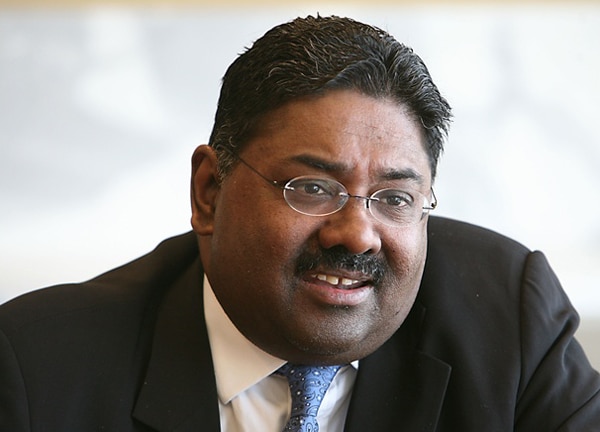NRI
$20,000 a Day Out-of-Jail Card

Every $20,000 in charitable giving may have saved Galleon Founder Raj Rajaratnam one day in jail.
Hedge Fund billionaire Raj Rajaratnam may have received the longest sentence for masterminding the biggest insider trading scandal in U.S. history, but his $45 million in charitable giving helped shave several years off his prison term.
In his sentencing ruling, Judge Richard Howell rated Rajaratnam’s offence level at 38 for a first time offender, and concluded that under the sentencing guidelines it equated to a sentence of 235 to 293 months in prison. But he sentenced him to just 132 months of imprisonment, shaving between 9 to 13.4 years off the potential sentence, citing his “good works” and ill health for the mitigation.
Noting that Rajaratnam’s “crimes and the scope of his crimes reflect a virus in our business culture that needs to be eradicated (and) simple justice requires a lengthy sentence,” Judge Howell, nevertheless, said, “the defendant’s good works figure in the equation here.”
He was particularly struck by Rajaratnam’s charitable activities: “It is true that many wealthy people are in the position to make the usual charitable contributions, but defendant’s responsiveness to and care for the less privileged goes considerably beyond the norm and can be seen in the scores of letters I received detailing his efforts to help tsunami victims in that Sri Lanka, earthquake victims in Pakistan, a homeless shelter here in New York, and 9/11 victims as well.”
Rajaratnam’s defense team had submitted nearly 200 letters in support of leniency, including one from Geoffrey Canada, President of Harlem Children’s Zone, which offers educational, social and medical services, to which Rajaratnam donated nearly $10.4 million since 2004, as well as from victims of the tsunami in Sri Lanka and the earthquake in Pakistan. His lawyers claimed that Rajaratnam had donated $45 million to charitable causes “quietly without seeking publicity or notoriety.”
Judge Howell was also swayed by Rajaratnam’s medical ailments, including “his advanced diabetes leading to imminent kidney failure, the need for transplant surgery, and a host of related problems.”
While medical treatment would be available to Rajaratnam in prison, Judge Howell conceded: “Prison provides a more intense form of punishment for critically ill prisoners. Illness does not provide a get-out-of-jail-free card, but some form of forbearance, however constrained by circumstances, is fundamental to our system of justice and is appropriate here.
Sentencing involves a complex calculation, as the judge noted in his preliminary remarks, “including the nature of the crimes, the need for just punishment, the need for deterrence, the risk of sentencing disparities, the guideline calculation, and finally the defendant’s individual circumstances,” adding that, “In considering those factors, the court is directed to impose a sentence sufficient but not greater than necessary to achieve all the statutory goals.”
Howell pointed out, for instance: “Insider trading is insidious but poses a different danger in Enron-type frauds and Madoff-like Ponzi schemes. Some distinction, therefore, is reasonable.”
Nonetheless, the court seemed most swayed by the medical and charitable factors in reducing Rajaratnam’s sentence by almost half — from between 19.5 to 24 years down to 11 years. Assuming that even half of the mitigation was based on his charitable activities, just how much was Rajaratnam’s $45 million help him? Between 1,565 to 2,448 days in prison time reduction, which translates to between $18,382 to $28,754 for each additional day of freedom.
Of course, the judge also imposed $10 million in fines and ordered Rajaratnam to disgorge nearly $54 million in profits. He did not order restitution, “because there are no individual identifiable victims.” Rajaratnam’s insider schemes actually benefitted his Galleon clients, although the prosecution insisted that the crimes were far from victimless. Rajaratnam, 54, founder of Galleon, which at its peak had over $7 billion in assets, was convicted in May of nine counts of securities fraud and five counts of conspiracy.
